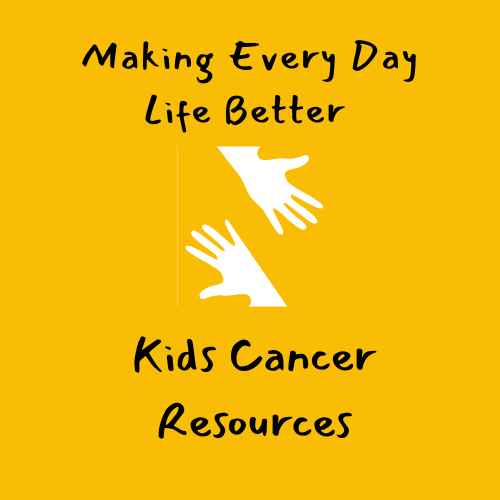Understanding Emotional Turmoil: The First Steps in Coping Childhood Cancer
When a child is diagnosed with cancer, parents and family members often find themselves overwhelmed by a torrent of emotions. Fear, uncertainty, grief, and hope collide, creating a complex emotional landscape that can be hard to navigate. Coping childhood cancer is not just about managing medical treatments—it also demands addressing these psychological challenges with care and resilience.
Recognizing that emotional responses are natural and varied is essential. Parents may feel guilt, anger, or helplessness, while siblings might struggle with feelings of neglect or confusion. Understanding these feelings allows families to take the first step toward emotional balance.
Key emotional reactions often include:
– Shock and disbelief after diagnosis
– Anxiety about treatment outcomes and side effects
– Sadness over changes in family dynamics
– Hope and determination to support the child’s fight
By acknowledging these emotions openly, families set the foundation for healthy coping mechanisms.
Building a Support Network: Essential for Coping Childhood Cancer
A reliable support network can make an enormous difference during a child’s cancer journey. From medical professionals to friends and extended family, the people surrounding both the child and caregivers offer invaluable assistance—emotional, physical, and practical.
Professional Support Systems
– Oncologists and pediatric specialists provide clear information about treatment plans and prognosis.
– Psychologists or counselors specializing in pediatric oncology help families process emotions and develop coping strategies.
– Social workers and patient navigators can assist in coordinating care and accessing resources.
Engaging with these professionals early allows families to feel informed and supported, reducing feelings of isolation.
Community and Peer Support
Parents often find comfort by connecting with others facing similar challenges. Support groups, both in-person and online, offer a safe space to share experiences and advice.
Resources include:
– Local childhood cancer foundations
– Online forums and social media groups dedicated to coping childhood cancer
– Community events focused on pediatric cancer awareness
Feeling part of a community can instill hope and reduce loneliness during difficult times.
Practical Strategies for Emotional Wellbeing
Taking deliberate steps to nurture emotional wellbeing helps families stay strong through the inevitable ups and downs. These strategies provide practical ways to cope childhood cancer-related stress and maintain resilience.
Accepting and Expressing Emotions
– Encourage verbalizing feelings in a safe environment—this might be through family conversations, journaling, or creative outlets like art or music.
– Avoid suppressing emotions, which can lead to increased anxiety or depression over time.
Maintaining Routine and Normalcy
Children benefit greatly from maintaining routines that provide a sense of stability. Family mealtimes, school or play activities, and sleep schedules can contribute to emotional equilibrium.
– Balance treatment schedules with opportunities for normal play and education.
– Celebrate small milestones to uplift morale and encourage positivity.
Self-Care for Caregivers
Parents often neglect their own needs, but self-care is vital for sustaining strength.
– Regular exercise, healthy eating, and adequate rest contribute to overall wellbeing.
– Taking short breaks to engage in hobbies or social activities can help recharge emotional reserves.
– Seeking professional help when feelings become overwhelming is a sign of strength, not weakness.
Helping Children Process Their Experience
Children may not always have the words to express their fears or confusion about cancer and treatment. Helping them understand and cope is a vital part of the journey.
Age-Appropriate Communication
– Use simple, honest language tailored to the child’s developmental level.
– Answer their questions patiently and avoid overwhelming them with information.
Encouraging Emotional Expression
– Creative activities such as drawing or storytelling can help children share feelings indirectly.
– Play therapy, guided by a trained specialist, can provide an outlet for anxiety and frustration.
Providing reassurance about the love and support surrounding them builds a foundation of trust and safety.
Managing Family Dynamics and Sibling Emotions
A child’s cancer journey affects the entire family, especially siblings who may feel overlooked or scared. Recognizing and addressing these challenges is critical in coping childhood cancer effectively.
– Involve siblings in age-appropriate ways to participate in care or hospital visits.
– Create one-on-one time to reinforce their importance and provide emotional attention.
– Encourage siblings to express their own feelings through conversations or counseling support.
Open communication and empathy within the family promote unity and help mitigate feelings of jealousy or resentment.
Embracing Hope and Resilience
While the road through childhood cancer is undeniably difficult, many families find unexpected sources of strength and hope.
– Focus on positive treatment milestones and celebrate progress, no matter how small.
– Cultivate resilience by reminding yourself of past challenges overcome and the power of collective support.
– Consider mindfulness and relaxation techniques like deep breathing or meditation to reduce anxiety.
Quotes from families who have navigated similar journeys can provide comfort and inspiration to hold onto hope.
Resources for Families Coping Childhood Cancer
Access to trusted information and external support is crucial to empower families facing childhood cancer.
– The American Childhood Cancer Organization (https://www.acco.org) offers resources, support groups, and educational materials.
– CancerCare provides free counseling and financial assistance for families affected by cancer.
– Nonprofits such as St. Jude Children’s Research Hospital offer patient-centered care and community outreach programs.
These organizations can be lifelines in the search for information, funding, and emotional assistance during challenging times.
Families taking active steps to address emotional needs alongside medical care create a more sustainable path through the cancer journey.
As you confront the complexities of coping childhood cancer, remember that strength grows through connection, honest communication, and self-compassion. You are not alone in this journey, and reaching out for help is a courageous and vital step. For personalized guidance and support, please visit khmuhtadin.com to explore available resources and connect with professionals dedicated to helping families navigate this path with hope and resilience.




